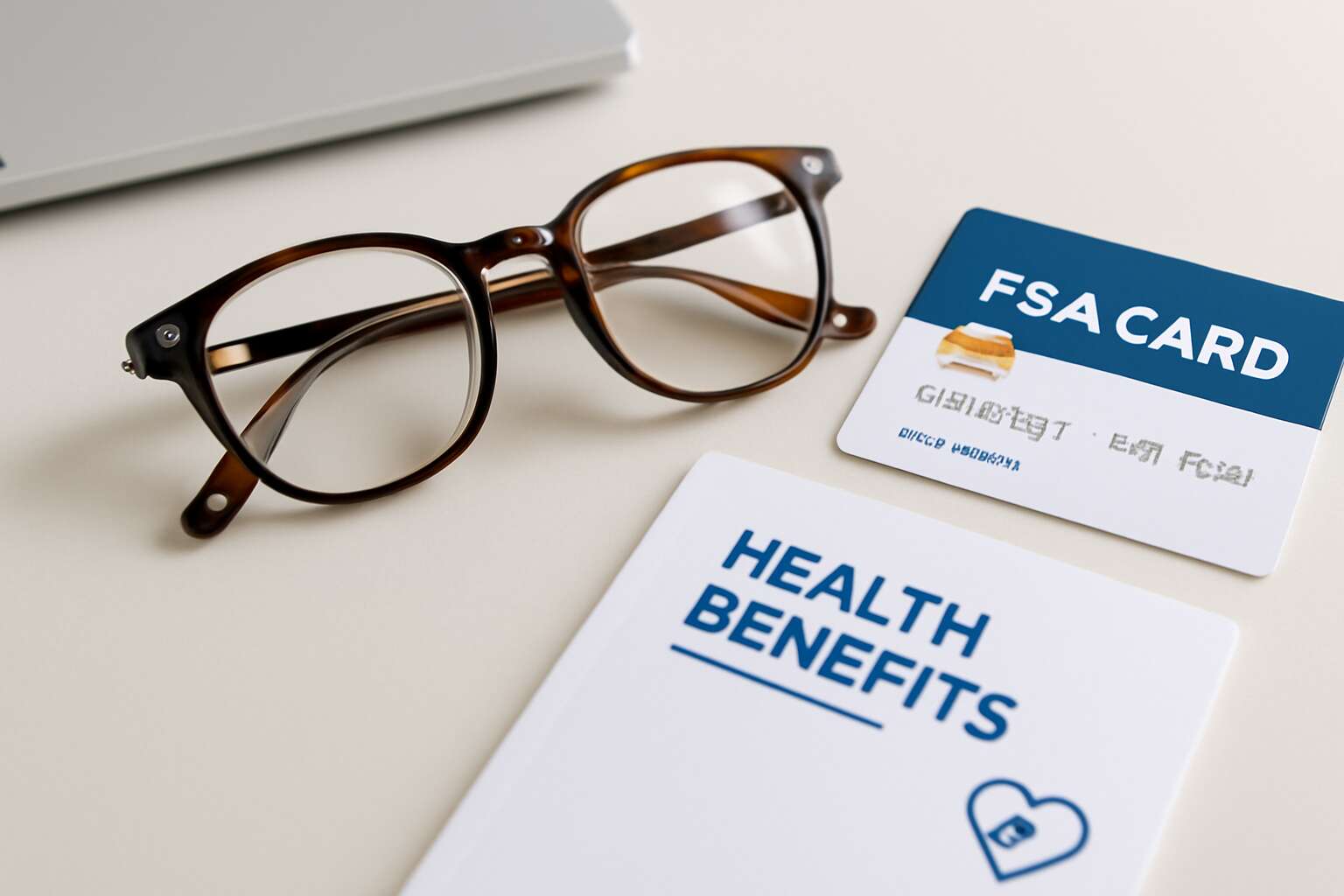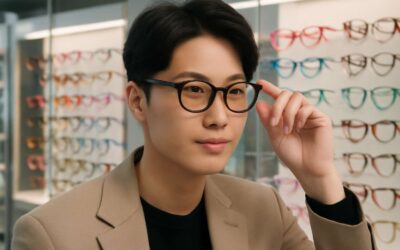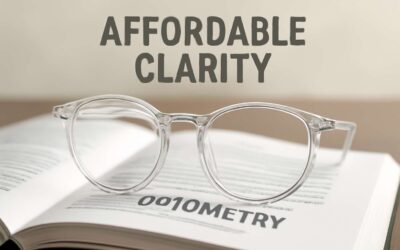Understanding FSA and Its Coverage
What Is an FSA?
Imagine stepping into a realm where clarity and vision intertwine with the magic of modern health benefits. An FSA, or Flexible Spending Account, acts as a mystical purse that can unlock financial assistance for a variety of essential health expenses. But one question often lingers in the minds of many: are prescription glasses covered by FSA? The answer holds the key to unlocking both style and clarity without casting a heavy toll on your wallet.
Understanding what an FSA entails is crucial. It’s a pre-tax account that allows individuals to set aside money specifically for eligible healthcare costs. These accounts transform everyday medical expenses into manageable investments, ensuring that vital items like prescription glasses are within reach. Generally, FSAs can cover a broad spectrum of vision-related expenses, but it’s wise to remember that coverage specifics can vary depending on the plan and provider.
For those seeking to harness their FSA benefits fully, it’s helpful to know that:
- Prescription glasses are typically classified as eligible medical expenses.
- FSA coverage often extends to prescription lenses, frames, and even certain contact lenses.
- Verification of prescription and receipts are necessary when filing claims for FSA reimbursement.
So, if you’re pondering whether your vision correction needs are supported by your FSA, the answer is often yes — with some nuances. Ensuring your glasses qualify can turn the expense from a burden into an accessible investment in your visual well-being. Truly, the digital age’s clarity begins with understanding the hidden magic woven into your FSA’s coverage.
How Does an FSA Work?
Understanding how an FSA functions is akin to deciphering a secret passageway to financial relief for healthcare needs. This pre-tax account is designed to transform mundane expenses into manageable investments, allowing you to allocate funds with a sense of purpose and clarity. When it comes to vision correction, the question often arises: are prescription glasses covered by FSA? The answer, in most cases, is a resounding yes! These vital tools for daily life are typically classified as eligible medical expenses, making them a natural fit within your FSA’s generous scope.
To navigate this intricate landscape, it helps to know that FSA coverage often extends to prescription lenses, frames, and even certain contact lenses. Verification of your prescription and keeping receipts are essential steps in ensuring smooth reimbursement processes. How does an FSA work in practice? It allows you to set aside a portion of your pre-tax income—an invisible shield that protects your wallet from the burden of healthcare costs. As you browse for new glasses, keep in mind that understanding the nuances of FSA coverage can turn a potentially hefty expense into an accessible investment in your visual clarity.
- Contribute pre-tax dollars into your FSA account each year, reducing your taxable income.
- Use the funds for eligible healthcare expenses, including prescription glasses and lenses.
- Provide necessary documentation, such as receipts and prescriptions, when filing claims for reimbursement.
Types of Expenses Covered by FSA
Understanding FSA and Its Coverage
A Flexible Spending Account (FSA) isn’t just a financial tool; it’s a lifeline for countless families navigating the unpredictable costs of healthcare. Many wonder, are prescription glasses covered by FSA? The reassuring answer is often yes! These essential items for daily life fall within the scope of eligible medical expenses, especially when they are prescribed by an eye care professional.
When it comes to coverage, FSAs typically extend to prescription lenses, frames, and even certain contact lenses. It’s important to keep detailed receipts and your prescription handy, as these documents are vital for smooth reimbursement.
In essence, an FSA transforms your pre-tax dollars into a powerful resource, making necessary healthcare expenses more manageable. Whether you’re upgrading your glasses or replacing worn-out contacts, knowing the ins and outs of FSA coverage can turn a potentially daunting expense into an accessible investment in your wellbeing.
Are Prescription Glasses Eligible for FSA Reimbursement?
FSA Rules for Vision Expenses
Prescription glasses are a cornerstone of daily life for millions, yet many remain unaware of the financial benefits available through their Flexible Spending Account (FSA). So, the pressing question lingers: are prescription glasses covered by FSA? The answer is a resounding yes! FSA rules for vision expenses clearly include prescription eyewear, recognising the vital role they play in maintaining good eye health.
The IRS stipulates that prescription glasses, whether single-vision, bifocals, or multifocals, are eligible for FSA reimbursement as long as they are prescribed by an eye care professional. This flexibility means you can use your FSA funds to purchase not just glasses but also prescription sunglasses and certain contact lenses.
Understanding the scope of FSA coverage can unlock substantial savings, transforming what might seem like a luxury into an accessible necessity. The key is ensuring your eyewear purchase aligns with the specified criteria, making the process straightforward and beneficial.
Prescription Eyeglasses and FSA Eligibility
In the vast realm of healthcare expenses, a question echoes with particular clarity: are prescription glasses covered by FSA? The answer, illuminated by the IRS rules and regulations, is a definitive yes! Prescription eyeglasses—be they single-vision, bifocals, or multifocals—are recognised as essential tools for maintaining clear vision and overall eye health. As long as they are prescribed by a licensed eye care professional, these vital optical aids qualify for FSA reimbursement.
This eligibility opens a treasure trove of savings, transforming what might seem like a luxury into an accessible necessity. Whether you’re purchasing standard prescription glasses, prescription sunglasses, or certain contact lenses, your FSA funds can be utilised to ease the financial burden. Understanding these parameters ensures you can navigate the process seamlessly, unlocking the full potential of your FSA benefits.
Including Prescription Sunglasses and Specialty Lenses
Many people overlook the fact that prescription glasses are a recognised medical expense covered by FSA. The IRS clearly states that prescription eyeglasses—whether single-vision, bifocals, or multifocals—are eligible for FSA reimbursement when prescribed by a licensed eye care professional. This can significantly reduce out-of-pocket costs for those needing visual correction.
Beyond standard glasses, prescription sunglasses and certain specialty lenses also qualify for FSA coverage. For example, tinted lenses prescribed for medical reasons or specialised lenses designed for specific activities can be included. If you’re considering a purchase, it’s helpful to know that these expenses can be easily covered using your FSA funds, making essential eye care more affordable.
- Prescription sunglasses
- Specialty lenses for medical or therapeutic purposes
- Contact lenses, in some cases, if prescribed for vision correction
Requirements for FSA Approval of Prescription Glasses
Proper Documentation Needed
Amidst the labyrinth of healthcare expenses, a stark reality persists: nearly 60% of adults require vision correction at some point, yet many remain unsure whether their essential eyewear qualifies for FSA reimbursement. To ensure that prescription glasses are indeed covered by FSA, proper documentation is paramount, transforming a simple receipt into a ticket for financial relief.
Proper documentation needed for FSA approval of prescription glasses must include a detailed prescription issued by a licensed eye care professional, alongside an itemised receipt that clearly specifies the purchase date, retailer, and the specific items purchased. Without these crucial pieces, claims are often denied, leaving the individual grappling with out-of-pocket costs that could otherwise be offset.
In essence, the pathway to FSA approval hinges on meticulous record-keeping and adherence to eligibility criteria. When these requirements are met, your prescription glasses—whether corrective or specialised—become a legitimate FSA expense, reaffirming their status not just as eyewear but as a vital component of health maintenance.
Licensed Provider’s Prescription
When seeking reimbursement for prescription glasses through an FSA, one of the most critical aspects is ensuring the prescription comes from a licensed eye care professional. The importance of this cannot be overstated; it serves as the cornerstone of FSA eligibility. The prescription must be current, accurate, and issued by a certified optometrist or ophthalmologist, providing a legal and medical affirmation of the necessity for vision correction.
Without this vital documentation, even the most compliant receipts are unlikely to secure FSA approval. The prescription acts as proof that the glasses are not merely fashion statements but medically necessary tools for maintaining eye health. When submitting a claim, always double-check that the prescription clearly states the pupillary distance, lens specifications, and the date issued, as these details are often scrutinised during the review process.
Additionally, many FSAs require an itemised receipt that precisely details the purchase date, retailer, and specific items bought. This meticulous record-keeping ensures that the claim aligns seamlessly with FSA rules for vision expenses. It’s worth noting that some providers may require a written statement from the eye care professional confirming that the glasses are essential for your vision correction, further solidifying your claim.
Itemized Receipts and Proof of Purchase
When seeking reimbursement for prescription glasses through an FSA, the importance of detailed documentation cannot be overstated. An itemised receipt acts as tangible proof that your purchase aligns with the FSA’s criteria for vision expenses. This receipt should include essential details such as the purchase date, retailer’s name, and a clear breakdown of the items bought. Without this level of specificity, even faithful adherence to other requirements may not suffice during the review process.
To streamline your claim, ensure your receipt features the following information:
- The exact date of purchase
- The retailer’s name and location
- A detailed list of the glasses purchased, including any lenses or accessories
In some cases, a written statement from your eye care professional may be necessary to confirm that the glasses are a medically necessary expense. This additional documentation reinforces your claim, making it more likely to be approved. Ultimately, meticulous record-keeping and thorough proof of purchase are vital steps in understanding whether prescription glasses are covered by FSA, ensuring you won’t encounter unnecessary hurdles during reimbursement.
How to Use Your FSA for Prescription Glasses
Submitting a Claim for Reimbursement
Navigating the realm of Flexible Spending Accounts can feel akin to uncovering an ancient map—full of hidden pathways and treasures. When it comes to *are prescription glasses covered by FSA*, the answer often feels like discovering a secret passage in the labyrinth. To unlock the potential of your FSA for prescription glasses, the process of submitting a claim for reimbursement must be approached with both precision and a touch of ritual.
First, ensure your purchase is eligible—most often, this includes prescription glasses obtained through a licensed provider. Then, gather your essential documentation: a detailed itemized receipt and the valid prescription from your eye care professional. Some providers even simplify this process by offering digital claim submission portals, allowing you to expedite your reimbursement.
For a seamless claim, follow these steps:
- Visit your FSA administrator’s website or contact their customer support.
- Upload or mail your itemised receipts and prescription documentation.
- Fill out any required claim forms with accurate details to prevent delays.
- Await the confirmation of your claim, which can sometimes be processed swiftly, especially if your documentation aligns perfectly with FSA rules for vision expenses.
Understanding how to properly leverage your FSA for prescription glasses transforms a simple purchase into a strategic move—unlocking a realm where vision and savings intertwine seamlessly.
Using FSA Debit Cards
Using your FSA for prescription glasses becomes even more straightforward when you opt for an FSA debit card. This method not only simplifies the payment process but also ensures your purchase is immediately recognised as eligible under FSA rules. When you buy your prescription glasses at a participating optical provider, simply pay with your FSA debit card — there’s no need for manual reimbursement claims in most cases.
The key advantage is that these transactions are automatically documented as a qualified medical expense, making it easier to prove eligibility if asked. Just remember, to stay within FSA guidelines, your glasses must be prescribed by a licensed eye care professional.
If you’re unsure whether your FSA debit card will be accepted, it’s wise to verify with your plan administrator. This approach seamlessly integrates your vision needs with your savings plan, making it clear that **are prescription glasses covered by FSA** isn’t just a yes or no — it’s a strategic move to optimise your benefits.
Maximizing Your FSA Benefits
In a world where eye care often competes with our daily caffeine fix, knowing how to maximise your FSA benefits can feel like discovering a secret passage in a grand estate. The question remains: are prescription glasses covered by FSA? The answer is a resounding yes — but only if you navigate the process with a touch of finesse. Using your FSA for prescription glasses transforms a potentially mundane purchase into a savvy financial move, especially when armed with the right knowledge.
To truly harness the power of your FSA, it’s crucial to understand the nuances of claiming. When purchasing prescription glasses, ensure your optician or optical provider accepts FSA debit cards — a feature that simplifies the transaction and keeps your paperwork elegantly tidy. Remember, the glasses must bear a licensed eye care professional’s prescription, ensuring compliance with FSA rules. This compliance not only guarantees eligibility but also streamlines any future audits or queries from your plan administrator.
For those seeking an even more seamless experience, consider this simple approach:
- Visit an optical provider recognised by your FSA plan.
- Ensure your prescription is up-to-date and provided by a licensed professional.
- Pay directly with your FSA debit card for immediate qualification and reimbursement avoidance.
By following these steps, your purchase of prescription glasses becomes not just a necessity but a strategic financial decision. So, are prescription glasses covered by FSA? Absolutely — provided you follow the proper channels, you turn a simple eyewear purchase into an intelligent utilisation of your healthcare savings, with the added bonus of avoiding the paperwork pile-up that often accompanies medical expenses.
Common Myths About FSA Coverage for Eyewear
Myth: All Glasses Are Covered
Many assume that all eyewear is fair game when it comes to FSA coverage, but that’s a common myth. The reality? Not every pair of glasses qualifies. If you’re asking, “are prescription glasses covered by FSA,” the answer depends on specific criteria. While prescription glasses with a valid healthcare provider’s prescription are typically eligible, non-prescription sunglasses or fashion eyewear are usually off the table.
It’s tempting to think that FSA funds can be used for an endless array of eyewear, but the regulations are more discerning. The IRS stipulates that the prescription must be current and provided by a licensed provider. So, if you’re eyeing those stylish frames, ensure they’re medically necessary and documented properly. Otherwise, your FSA might turn a blind eye—literally! It’s a common misconception that all glasses are covered, but understanding the nuances can save you from a reimbursement disappointment.
Myth: FSA Will Cover All Expenses
There’s a common misconception that the FSA will cover all glasses, but the reality is far more nuanced. Many assume that simply purchasing any eyewear qualifies, yet the IRS regulations are quite specific. When asking, “are prescription glasses covered by FSA,” the answer hinges on certain criteria being met. Only those with a valid, current prescription from a licensed healthcare provider are typically eligible for reimbursement.
Fashion eyewear, non-prescription sunglasses, or trendy frames without a prescription generally don’t qualify. This can come as a surprise, especially when eye care costs add up. To avoid disappointment, it’s essential to keep detailed documentation, including the prescription and itemised receipts. Remember, your FSA is designed to support medically necessary expenses, not just stylish accessories.
Understanding these distinctions ensures your claim isn’t denied due to simple oversights. After all, knowing whether your specific pair of prescription glasses is covered by FSA can make all the difference during tax season!
Myth: FSA Can Be Used for Cosmetic Frames
Many believe that FSA funds can be used for any kind of eyewear, but this is a misconception rooted in superficial understanding. The myth that FSA can be used for cosmetic frames ignores the strict regulations governing eligible expenses. When considering, “are prescription glasses covered by FSA,” the answer hinges on whether the item serves a medically necessary purpose. Simply purchasing non-prescription, fashionable eyewear does not qualify—your FSA is for health-related expenses, not style.
Admittedly, it’s easy to be tempted by trendy frames or sunglasses without prescriptions, yet these do not meet the criteria for reimbursement. To navigate this landscape, it’s vital to distinguish between eligible and ineligible items. Only those with a valid, current prescription from a licensed healthcare provider and proper documentation typically qualify. Understanding this boundary protects you from unwelcome surprises at tax time and ensures your FSA funds are utilised effectively.
Tips for Navigating FSA and Vision Care
Check FSA Plan Details Annually
Navigating the labyrinth of Flexible Spending Accounts (FSA) can sometimes resemble an ancient quest, where every detail counts. With the right knowledge, however, you can unlock the treasure trove of benefits concealed within your plan—especially when it comes to vision care. An often-overlooked aspect is understanding whether your prescription glasses are covered by FSA. The key lies in diligently reviewing your FSA plan details annually, as these can evolve with policy updates or employer stipulations.
A crucial tip is to always verify your plan’s specific coverage for vision expenses—some plans explicitly include prescription glasses, while others may have restrictions. Since FSA rules for vision expenses can vary, consulting your plan documentation or speaking directly with your administrator ensures clarity. Remember, keeping meticulous records—such as licensed provider’s prescriptions and itemized receipts—can streamline the claim process if you seek reimbursement. Staying informed about these nuances guarantees maximum benefit from your FSA, making the pursuit of clearer vision a seamless adventure.
Keep Detailed Records
In the labyrinthine world of health benefits, clarity often hinges on the minutiae—those details that can transform a mundane expense into a well-earned reimbursement. The question, “are prescription glasses covered by FSA?” lurks in the minds of many, yet the answer is far from straightforward. Navigating this terrain demands vigilance; plan details can shift with policy updates or employer stipulations, making annual review an essential ritual.
To truly optimise your FSA benefits for vision care, meticulous record-keeping becomes your most trusted ally. Keep copies of licensed provider’s prescriptions, detailed receipts, and proof of purchase—these are your passports through the reimbursement process. Remember, the integrity of each claim hinges on these documents, ensuring a seamless journey from expense to reimbursement.
- Review your FSA plan documentation regularly to stay abreast of coverage nuances.
- Maintain organised records that substantiate your vision-related expenses.
- Consult your plan administrator when uncertainties arise, ensuring you’re fully informed about what qualifies under your scheme.
By cultivating a disciplined approach to record-keeping and staying informed about policy updates, you can unlock the full potential of your FSA, making the pursuit of clearer vision both practical and rewarding. After all, understanding whether prescription glasses are covered by FSA isn’t just about saving money—it’s about empowering your health choices with confidence and precision.
Consult Your FSA Administrator
Embarking on the journey through the intricate maze of Flexible Spending Accounts (FSAs) can feel akin to navigating a mythical labyrinth—full of twists, turns, and hidden treasures. One question often whispered in the corridors of health benefits is, “are prescription glasses covered by FSA?” The answer, while not always straightforward, can unlock significant savings and clarity for your vision care needs. To truly harness the power of your FSA, understanding the nuances and engaging directly with your FSA administrator becomes essential.
Consulting your FSA administrator is like seeking counsel from a seasoned sage before venturing into uncharted territory. They can illuminate the specifics of your plan and clarify whether your prescription glasses qualify for reimbursement. Remember, policies shift like the tides, so regular dialogue ensures your knowledge remains current. Sometimes, a simple phone call or email can reveal whether your eye care expenses, including prescription glasses, are eligible under your scheme.
Keep in mind, maintaining open communication with your FSA provider not only dispels uncertainties but also maximises your benefits. By staying informed and organised—perhaps even keeping a dedicated folder for vision-related expenses—you transform what could be a daunting task into a seamless process. After all, understanding whether prescription glasses are covered by FSA isn’t just about saving money; it’s about empowering your health choices with confidence and clarity. So, don’t hesitate to ask—your FSA’s treasure chest may hold more than you realise!




0 Comments